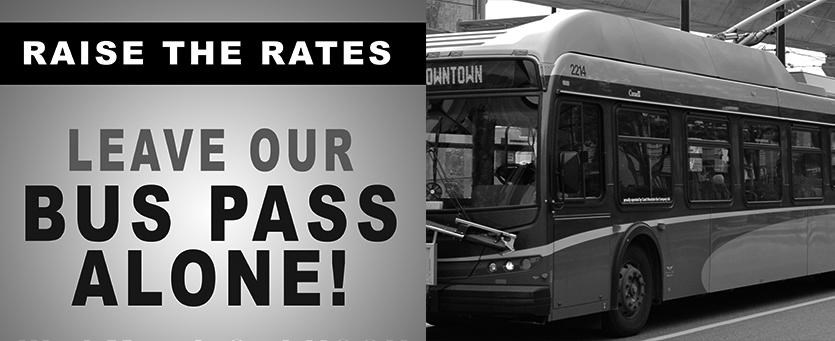On Wednesday’s front page, we had a story about the fact only four of the nearly 2,000 government-sponsored Syrian refugees have settled in Richmond because of the high cost of housing.
On page three, we had a story about a protest outside of MLA Teresa Wat’s office regarding, in part, free bus passes for people with disabilities being replaced with cash.
What struck me in both stories were the numbers. A refugee family of four is given $750/month for housing. My son is currently going to school in Victoria. It’s costing him $750/month to rent one room in a shared house — and it’s no mansion. We tried hard to find something cheaper, but couldn’t.
Regarding the bus pass, the real story is the fact those with disabilities are expected to live on $986/month, and that’s up from $906 plus a $45 bus pass. In Alberta, disabilty benefits are about $1,588 — just for some context.Those who are able, can earn an additional $9,600/year without deductions to their assistance, but many with disabilities are not capable of any kind of paid employment.
It’s hard to understand how we justify these numbers to ourselves. How is it we think it’s okay to saddle a person who is already struggling with a second, even more debilitating, disability — poverty. How is it we let ourselves believe a refugee family of four will find adaquate housing for $750/month?
Perhaps we do it by focusing on how much our own taxes would increase if we brought refugees, or the disabled, up to a livable standard. Maybe it’s by thinking that “these people” are somehow different than us; they don’t really need the things we need. Maybe it’s by thinking they somehow brought this on themselves and are lucky to be gifted anything. Or maybe (and I think this is the most likely) it’s simply by not thinking, not allowing ourselves to actually imagine the day-to-day reality of living with so little.
Awhile back, a Surrey MLA took the challenge of living on welfare for one month in an effort to bring awareness to that reality. It made for an interesting story, but that was more than four years ago now. Not much has changed — other than the fact he lost his seat in the following election.
I actually believe most people have a heart and would think it unfair that those born with severe physical or mental limitations, or those whose lives have already been shattered by war, should also be sentenced to a life of poverty. But when it comes to making any significant change, we seem paralyzed.
We either lack the imagination to walk in another’s shoes, or the intellect to draw connections between our choices and the level of support we offer the vulnerable.
In this regard, we show our greatest disability.



